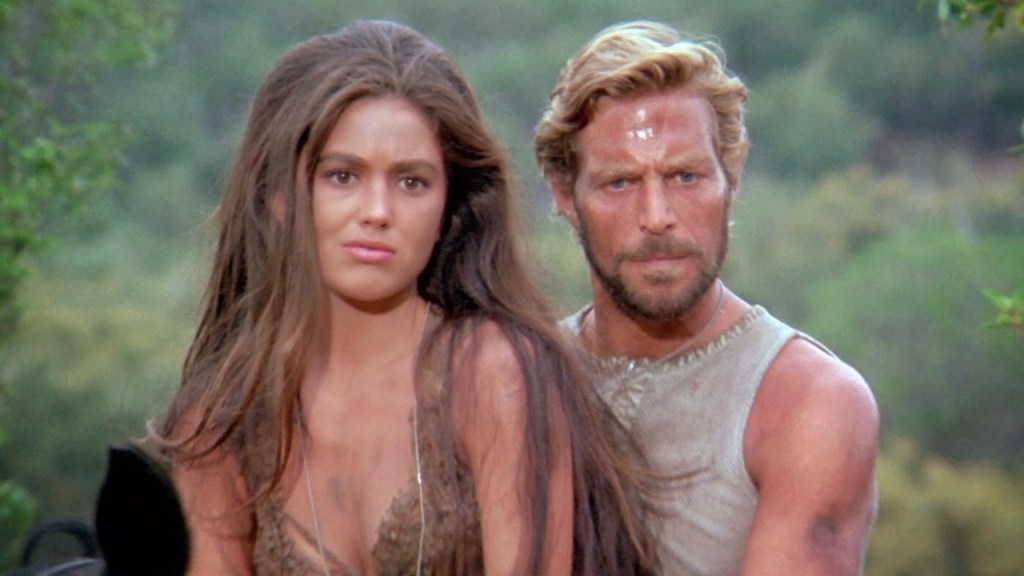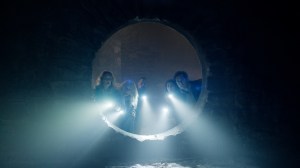The Planet of the Apes franchise is widely known as a series rife with creativity, taking a far-fetched idea and making magic from it. The original is a celebrated classic that has stood the test of time, with some of the sequels garnering widespread acclaim and others missing the mark completely. The first follow-up effort, Beneath the Planet of the Apes, clearly falls into the latter category for many fans. However, it seems only fair to give the film some credit for its unbridled display of creativity and for daring to be different, frequently deviating from the formula established by its iconic predecessor.
Videos by ComicBook.com
The second series installment, which is easily the most original of the entire canon, picks up immediately after the events of the first. This 1970 sequel begins with a similar setup to its predecessor but eventually branches out in a big way during the back half, taking the narrative to unexpected and downright strange places.
Beneath the Planet of the Apes Is a Perplexing Sequel With No Shortage of Original Ideas
While the storyline of this sequel is more than a little out there and the film absolutely leans into camp on the regular, it dares to boldly carve out its own path. That much is apparent with the eventual introduction of a population of mutated humans who dwell underground in an abandoned subway station and senselessly worship an ages-old nuclear bomb as their guiding force.
Anyone who has seen the film knows it only gets weirder from there. Members of the (literally) underground society, have evolved to develop telepathic abilities and use their penchant for thought control to thwart their enemies.

Beneath the Planet of the Apes catches up with Taylor and Nova (a pair of surviving characters from the original played by Charlton Heston and Linda Harrison respectively) as they attempt to escape Ape City, the primary setting of the first film. In their efforts, Taylor disappears, leaving Nova, a mute human, to fend for herself.
Nova eventually encounters Brent (James Franciscus) the only survivor of a rescue mission who set out to look for Taylor and his team after their ship crashed.
Deeper Themes in Beneath the Planet of the Apes
In both the original Planet of the Apes and Beneath the Planet of the Apes, the protagonists make the harrowing realization that mankind has destroyed itself with nuclear warfare. The very idea that a faction of the human race survived a nuclear apocalypse only to turn around and start worshiping a nuclear bomb capable of destroying the entire planet is a damning indictment of our societal fixation with global dominance and misguided desire to achieve supremacy by brute force, even at our own peril.
The original film warned that our societal fixation with nuclear warfare would lead to the undoing of the human race. The second film continues to explore similar themes, sounding the alarm about cultural fears of the time stirred up by the continuation of the Cold War.
RELATED – The Best Planet of the Apes Sequel Had a Viral Marketing Campaign That Wouldn’t Fly Today
Beneath the Planet of the Apes may not be everyone’s cup of tea, but the film deserves credit, at the very least, for its status as a trendsetter. This oft-derided 1970 effort is an early example of a direct sequel. It bowed at a time before such a thing became commonplace in the years that followed. Moreover, it marches to the beat of its own drum, something that has become less and less common in the modern era.
Although we’re not proclaiming that Beneath the Planet of the Apes is a great movie, it is, nonetheless, an unexpected and often entertaining effort that dared to be different.
As for the future of the series, we know this much: a planned sequel to the 2024 film Kingdom of the Planet of the Apes is currently in development. The yet-untitled project will be a direct sequel to Kingdom and is expected to bow in 2027.
Where do you stand on Beneath the Planet of the Apes? Is it a franchise entry for which you have a soft spot, or perhaps a canonical entry for which you don’t have the time of day? There are simply no wrong answers, so let us know in the comments section below!








